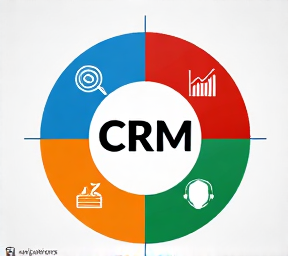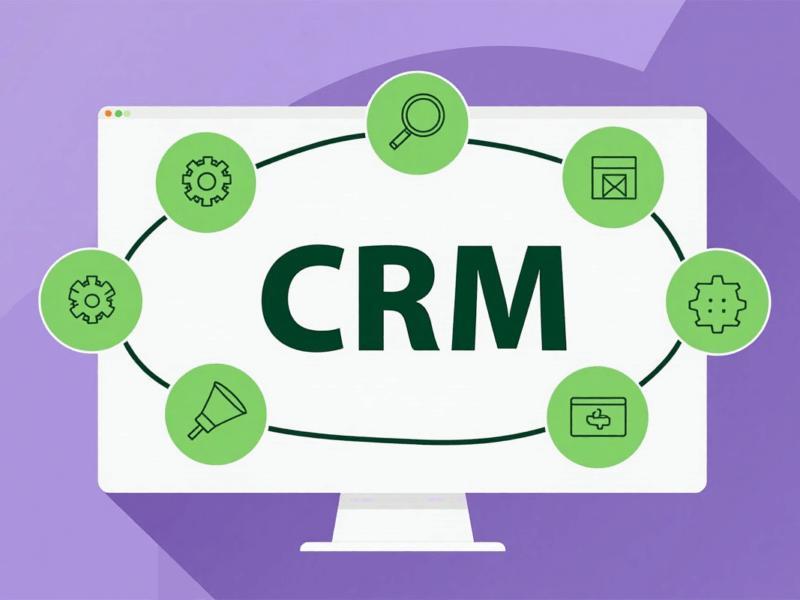How Cloud-Based CRM Will Be Key to Business Productivity in 2025
As businesses continue to evolve in the digital age, leveraging technology to enhance productivity has become a necessity. One of the most significant advancements in this realm is the adoption of cloud-based Customer Relationship Management (CRM) systems. By 2025, cloud-based CRM is expected to play a pivotal role in boosting business productivity, streamlining operations, and improving customer interactions. This article will explore how cloud-based CRM systems will transform business productivity, the benefits they offer, and best practices for implementation.
Understanding Cloud-Based CRM
What is Cloud-Based CRM?
Cloud-based CRM refers to customer relationship management software that is hosted on the cloud rather than on local servers. This means that businesses can access their CRM data from anywhere with an internet connection, using various devices such as laptops, tablets, or smartphones. This flexibility allows teams to collaborate effectively and manage customer relationships on the go.
Why Choose Cloud-Based CRM?
The shift towards cloud-based solutions has been driven by several factors:
- Accessibility: Users can access the system anytime, anywhere.
- Cost-Effectiveness: Reduces the need for expensive hardware and IT maintenance.
- Scalability: Easily scale your CRM solution as your business grows.
- Automatic Updates: Regular updates are managed by the provider, ensuring you always have the latest features.
The Impact of Cloud-Based CRM on Business Productivity
1. Enhanced Collaboration
Breaking Down Silos
Cloud-based CRM systems facilitate better collaboration among teams by providing a centralized platform where all customer information is stored. This eliminates data silos and ensures that all team members have access to the same information.
Example: Sales and marketing teams can work together more effectively by sharing insights about customer behavior and preferences, leading to more targeted campaigns and improved sales strategies.
Real-Time Updates
With cloud-based CRM, any changes made to customer data are updated in real time. This ensures that all team members are working with the most current information, reducing miscommunication and errors.
2. Improved Customer Insights
Data-Driven Decision Making
Cloud-based CRM systems provide powerful analytics tools that allow businesses to gain insights into customer behavior and preferences. By analyzing this data, companies can make informed decisions that enhance customer satisfaction and drive sales.
Key Metrics to Track:
- Customer engagement levels
- Purchase history
- Feedback and reviews
Personalization at Scale
With detailed customer profiles, businesses can tailor their communications and offerings to meet individual needs. This level of personalization fosters stronger relationships with customers and increases loyalty.
3. Automation of Routine Tasks
Streamlining Processes
One of the most significant advantages of cloud-based CRM is its ability to automate routine tasks such as follow-up emails, appointment scheduling, and lead management. This automation frees up valuable time for employees to focus on more strategic initiatives.
Benefits of Automation:
- Increased efficiency
- Reduced human error
- Enhanced consistency in communications
Lead Scoring and Nurturing
Cloud-based CRM systems often include lead scoring features that help prioritize leads based on their engagement levels. This allows sales teams to focus their efforts on high-potential leads, improving conversion rates.
4. Scalability and Flexibility
Adapting to Business Growth
As businesses grow, their needs change. Cloud-based CRM systems can easily scale up or down based on current requirements without requiring significant investments in hardware or software.
Scalable Solutions:
- Add or remove users as needed
- Upgrade features based on business needs
- Adjust subscription plans according to budget constraints
Remote Work Capabilities
The flexibility of cloud-based CRM allows teams to work remotely without sacrificing productivity. Employees can access customer data and collaborate with colleagues from anywhere in the world.
5. Cost Savings
Reduced IT Costs
Implementing a cloud-based CRM solution eliminates the need for costly hardware purchases and ongoing maintenance expenses associated with traditional on-premises systems.
Cost Benefits:
- Subscription-based pricing models reduce upfront costs
- No need for dedicated IT staff for maintenance
- Regular updates included in subscription fees
Increased ROI
By improving efficiency, enhancing customer satisfaction, and driving sales growth, cloud-based CRM systems offer a strong return on investment (ROI) for businesses.
Best Practices for Implementing Cloud-Based CRM
To maximize the benefits of cloud-based CRM systems, businesses should follow these best practices:
1. Define Clear Objectives
Before implementing a cloud-based CRM solution, it’s crucial to define clear objectives for what you want to achieve. Whether it’s improving lead management or enhancing customer service, having specific goals will guide your implementation process.
Key Questions to Consider:
- What specific outcomes do you want from the integration?
- How will you measure success?
- What resources do you need to achieve these goals?
2. Involve Key Stakeholders
Engaging key stakeholders from various departments—such as sales, marketing, and customer support—during the implementation process ensures that the system meets the needs of all teams involved in customer interactions.
3. Provide Comprehensive Training
Investing in training sessions for employees is essential for familiarizing them with the new system. Comprehensive training ensures that staff understands how to use the CRM effectively and helps drive adoption across the organization.
Training Topics to Cover:
- System navigation
- Data entry best practices
- Campaign creation and management
- Reporting and analytics interpretation
4. Monitor Performance Metrics
After implementing the cloud-based CRM system, regularly monitor performance metrics related to customer service outcomes. Analyzing these metrics will help identify areas for improvement and ensure that your objectives are being met.
Key Metrics to Track:
- Customer satisfaction scores
- Response times
- Conversion rates
- Sales growth
5. Ensure Data Quality
Data quality is critical for successful integration. Ensure that your data is accurate, complete, and up-to-date before integrating your systems.
Tips for Maintaining Data Quality:
- Conduct regular audits of your data
- Use standardized formats for data entry
- Implement validation rules within your forms
The Future of Cloud-Based CRM in Business Productivity
As we look towards 2025, several trends are likely to shape how businesses utilize cloud-based CRM systems:
1. Artificial Intelligence (AI)
AI-powered features are becoming increasingly common in cloud-based CRM systems. These capabilities can analyze vast amounts of data to provide insights into customer behavior, predict future trends, and automate responses based on predefined criteria.
Example:
AI chatbots can handle routine inquiries while freeing up human agents to tackle more complex issues.
2. Enhanced Integration Capabilities
The future will see even more robust integration capabilities between cloud-based CRMs and other business tools such as marketing automation platforms, accounting software, and eCommerce solutions.
Benefits of Enhanced Integration:
- Improved data flow between systems
- Reduced manual entry errors
- More comprehensive analytics across platforms
3. Focus on Customer Experience
As competition intensifies across industries, businesses will increasingly prioritize delivering exceptional customer experiences through personalized interactions facilitated by cloud-based CRMs.
Strategies for Enhancing Customer Experience:
- Utilize customer feedback for continuous improvement
- Implement omnichannel communication strategies
- Leverage data analytics for personalized marketing efforts
Conclusion
The integration of cloud-based CRM software will be pivotal for enhancing business productivity by 2025. By centralizing information, improving collaboration among teams, providing valuable insights into customer behavior, automating routine tasks, ensuring scalability and flexibility, and offering cost savings—cloud-based CRMs present a powerful solution for modern businesses looking to thrive in an increasingly competitive landscape.By following best practices during implementation—such as defining clear objectives, involving stakeholders, providing comprehensive training, monitoring performance metrics regularly, and ensuring data quality—businesses can maximize their investment in cloud-based CRM technology.As we move forward into an era defined by rapid technological advancements and evolving consumer expectations, embracing cloud-based CRM solutions will be essential for organizations aiming not only to survive but also thrive in this dynamic environment.For further reading on how technology can enhance business operations, check out this resource.


